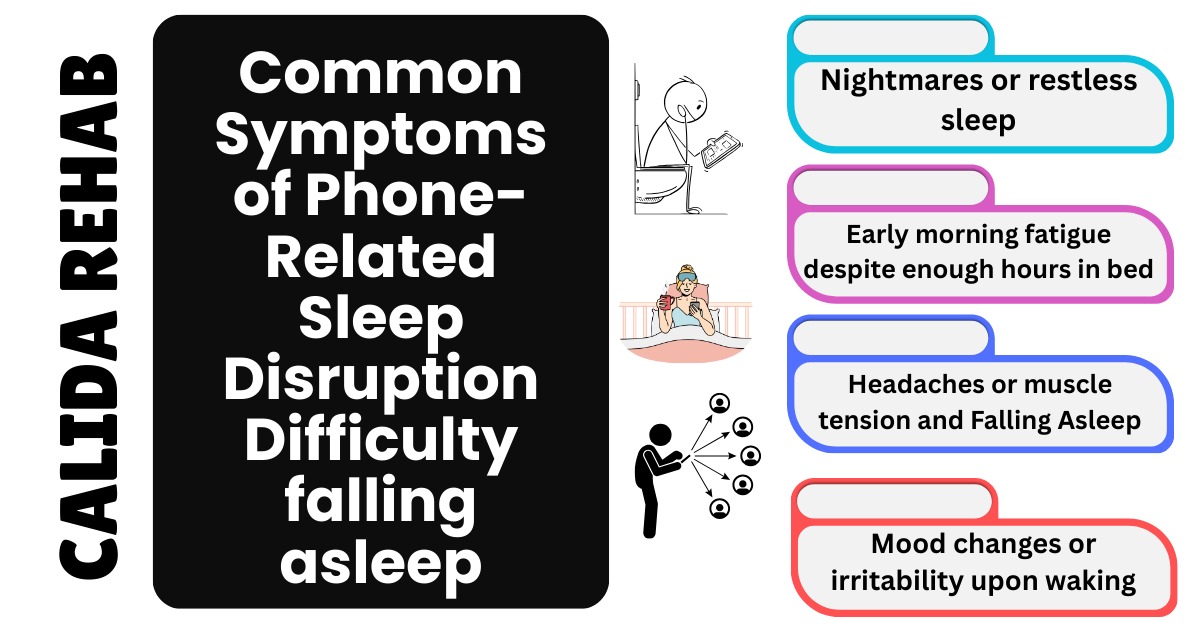
Why Sleeping With Your Phone Is Bad for Your Health (And What to Do Instead)
Sleeping with your phone beside you may seem harmless, but over 300+ reported cases link it to sleep disruption, anxiety, overheating, and long-term mental fatigue.
Sleeping with your phone beside you has become a common habit, especially among young people. For convenience, many even place it under their pillow to quickly answer calls or alarms. But what most people don’t realize is that this small habit can have a big impact on your health. Studies suggest that radiation and screen exposure from phones can disrupt your sleep, affect hormone levels, and even contribute to long-term mental fatigue (Texas, Insomnia, Overheating, Anxiety, SleepDisruption)..
How Sleeping Next to Your Phone Affects Your Health
Disrupts Your Natural Sleep Cycle
The blue light from your phone can delay melatonin production, tricking your body into staying alert even when it’s time to rest. This confuses your circadian rhythm and makes it harder to fall or stay asleep.
Affects Brain Function and Hormone Balance
Prolonged exposure to electromagnetic fields from smartphones may interfere with the brain’s electrical activity. It can disturb your heart rhythm, stress response, and hormonal balance—leading to anxiety, depression, or chronic fatigu .
Raises Mental Health Concerns
Nighttime phone use is linked to increased anxiety, emotional restlessness, and even depressive symptoms. It can be especially harmful for those already battling mood disorders .
Why you should't sleep with your phone
Exposure to Radiation
Smartphones emit low levels of non-ionizing radiation during use, especially when connected to mobile networks or Wi-Fi. Though not immediately harmful, prolonged exposure may interfere with your biological clock, heart rhythm, and hormone regulation.
Raises Mental Health CoInterrupts Your Sleep Cycle
One of the biggest issues with nighttime phone use is blue light exposure. The light emitted by your screen tricks your brain into staying awake by reducing melatonin production—your sleep hormone. This delays the natural sleep cycle, making it harder to fall and stay asleep.
According to mental health specialists, sleeping next to your phone may worsen symptoms of insomnia, anxiety, and mood disorders. Notifications, vibrations, and even the screen lighting up can interrupt deep sleep and impact overall mental well-being.
Why Blue Light Affects Your Brain
Our sleep-wake cycles are naturally synchronized with sunrise and sunset. When exposed to blue light at night, the brain believes it's still daytime. This confuses the circadian rhythm, delaying melatonin release and pushing the body into a more alert state—even when it should be winding down.
Experts from leading rehabilitation and mental health centres, Calida Rehabilitation Centre, explain that frequent exposure to blue light and radiation can be especially harmful to people recovering from stress-related conditions like anxiety, insomnia, or depression.
“Choose the Best Rehab Centre in Mumbai – Call Today!
Common Symptoms of Phone-Related Sleep Disruption

- Difficulty falling asleep: Sleeping with your phone close can lead to difficulty falling asleep. The blue light from screens interferes with melatonin production, disrupting your natural sleep rhythm. Notifications and late-night scrolling overstimulate your brain, making it harder to relax. Creating a phone-free bedtime routine can help your mind unwind and improve your ability to fall asleep quickly and naturally.
- Nightmares or restless sleep: Keeping your phone nearby while sleeping can trigger nightmares or restless sleep. Late-night exposure to screen light and digital content overstimulates the brain, preventing deep, restorative sleep. Constant notifications or buzzing can disturb your sleep cycle. Moving your phone away and reducing screen time before bed helps calm your mind and promotes peaceful, uninterrupted rest throughout the night.
- Early morning fatigue despite enough hours in bed: If you feel tired in the morning despite sleeping for hours, your phone might be to blame. Radiation, blue light, and notifications can interrupt your deep sleep stages, leaving you restless. Even without waking fully, your sleep quality suffers. Keeping your phone away from the bed helps restore healthy sleep patterns and reduces early morning fatigue naturally.
- Headaches or muscle tension: Sleeping near your phone can cause frequent headaches or muscle tension. Prolonged exposure to radiation and poor sleeping posture while checking your phone can strain neck and head muscles. Additionally, electromagnetic fields may affect nerve function. Creating a tech-free sleep zone reduces physical strain and lowers the risk of waking up with pain or tightness in your body.
- Mood changes or irritability upon waking: Waking up irritable or in a bad mood could be linked to sleeping with your phone nearby. Nighttime screen time overstimulates the brain, disrupts melatonin production, and interferes with deep sleep. Poor-quality rest affects emotional balance, increasing stress and mood swings. Keeping your phone away at night supports mental clarity—an approach supported by experts at leading depression recovery centre in Pune.
Is Radiation from Phones Harmful?
Mobile phones emit signals typically around 900MHz. While the levels are low, they can still cause slight tissue heating when the device is close to your head for extended periods—especially if you're making long calls at night. This is why it's recommended to keep your phone at least 3–6 feet away from your bed when sleeping.
Charge your phone in another room. If you need it for emergencies, place it across the room and use airplane mode to reduce radiation.
Bhang can worsen symptoms for people suffering from Anxiety Disorder or Depression. The THC in bhang may trigger anxiety, mood swings, paranoia, hallucinations, and even psychosis. Individuals with existing mental health conditions are at a higher risk of experiencing these side effects.
Spend the last hour before bed winding down. Avoid screens, dim the lights, read, journal, or meditate to signal your body it’s time to sleep.
Invest in blackout curtains, use essential oils, or reduce bedroom noise. All these changes can enhance your sleep quality naturally.
Struggling with anxiety due to your tech-heavy lifestyle? Reach out to a for the support you need. leading rehabilitation center in Mumbai"
Final Thought: Keep Your Phone at a Safe Distance
If you place your phone just a few feet away from your bed, you’ll reduce exposure to light and radiation, fall asleep more easily, and wake up feeling more refreshed. This small habit shift can make a big difference—especially for those undergoing treatment at a depression recovery centre in Pune or seeking help from best anxiety doctors in Mumbai.
Read More Blogs
- Top 10 Rehabilitation Centres in India
- How Does High Blood Pressure Cause Mental Health Issues?
- Secrets to Overcoming Emotional Pain in Recovery
- Myths About Pain Management During Withdrawal: Debunking Misconceptions
- How Does Dopamine Play a Role in Addiction?
